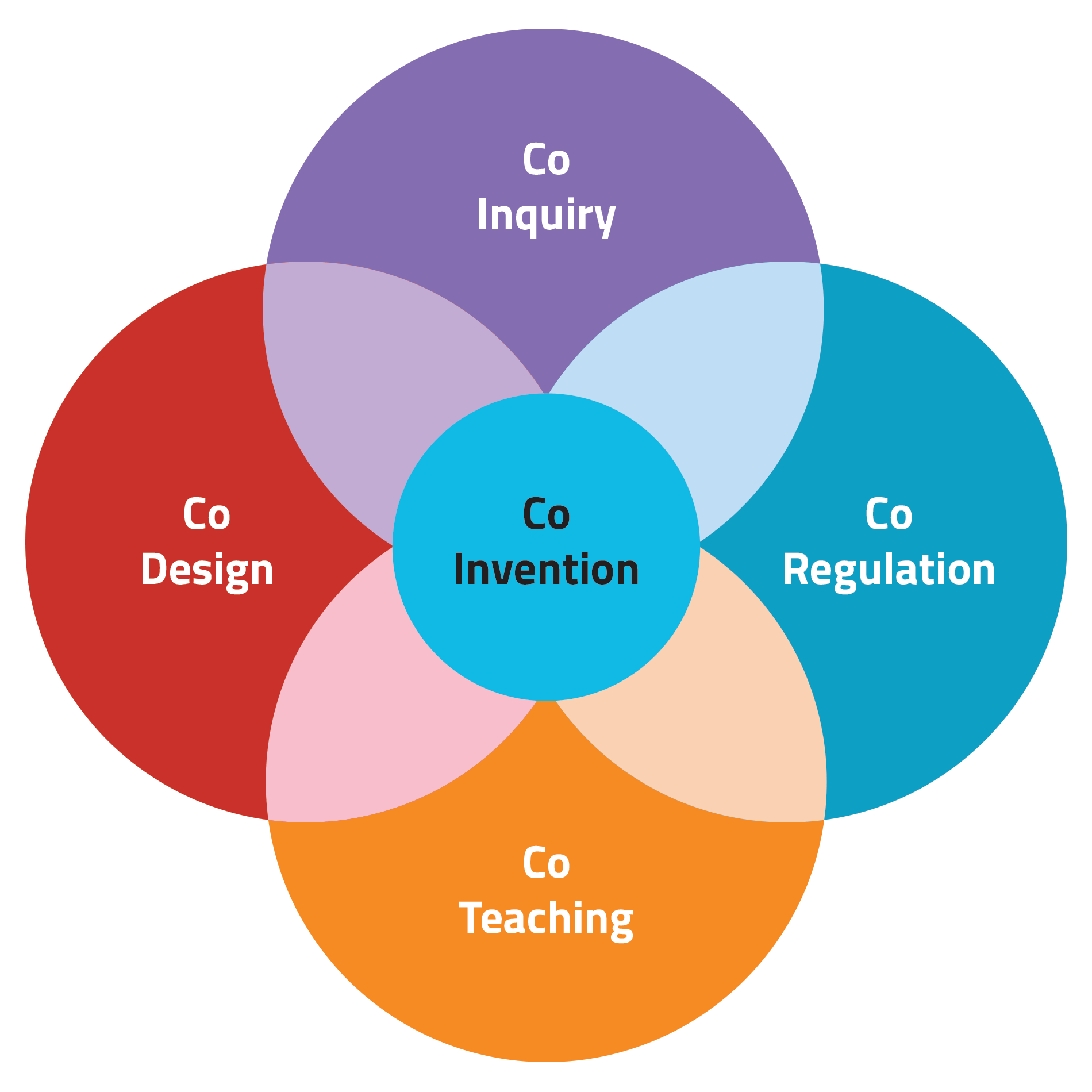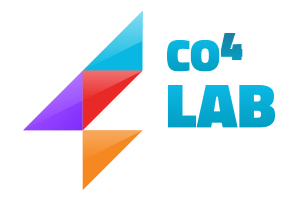INTRODUCTION
Objectives
The purpose of the Co4-Lab project is to research and develop knowledge-creating practices of learning based on co-inquiry, co-design, co-teaching, and co-regulation.
Laboratory of Co-inquiry, Co-design, Co-teaching and Co-regulation
The projects aims at improving quality of science, technology, and craft education at primary and lower secondary schools by organizing series of design experiments for cultivating technology-mediated practices of collaborative invention and discovery.
School projects are focused on exploring challenging real-world phenomena, integrating knowledge and competence across subject domains, and designing and inventing, testing and constructing various artefacts and products, and building knowledge of the process.
Co4-Lab integrates researchers-’and schools’ (teachers and students) efforts for cultivating learning practices that elicit 21st century skills and provide challenges inspiring both male and female and younger and older students.
The project produces guidelines, models, and resources regarding knowledge-creating learning for supporting teachers and schools in nurturing practices of invention pedagogy.

Co-Invention
Object-driven collaborative process of knowledge creation eliciting participants’ growth and development.
Co-Design
Student teams participate in ideating, designing, inventing, prototyping and making various artifacts using digital and traditional tools and technologies. Students take part in building the internet of things.
Co-Teaching
School projects are guided and supported by teacher team collaborating with students, researchers and other experts. Experts of technology and design support creative processes.
Co-Regulation
Students participate in collaborative invention by relying on peer, teacher, and expert feedback (shared cognitive and socioemotional regulation aimed at reaching collective flow)
Co-Inquiry
Students participate in collaborative inquiry of a challenging phenomenon through science and other experiments and jointly develop their ideas creating, building knowledge.
Co-invention as a part of school learning
Co4-Lab aims at bringing elements of maker culture to school by appropriating instruments and methods of digital fabrication and collaborative invention.
Co4-Lab students participate in investigative practices of learning (“progressive inquiry”) that involve creating and building new knowledge as well as engage participants designing artefacts by solving authentic epistemic, engineering and aesthetic problems and challenges.
The school projects will capitalize on prevailing infrastructure of craft, technology, and science education. Craft education is a part of Finnish national curriculum and together with science studies provide ample opportunities for maker projects at lower and upper elementary education. The Co4-Lab projects will rely on recently emerged instruments and methods of personal fabrication and collaborative making, such as coding, robotics, 3D printers, and laser cutters.
Cultivation of the pedagogy of co-invention aims at getting students to design, invent and construct shared artefacts and, thereby, engage and inspire them not only building knowledge but also the internet of things.


School-university collaboration
Co-4-Lab is researching and developing culture of collaborative designing, inventing, and making and associated pedagogies with schools, experts (e.g., museum pedagogics, technology experts, inventors), and researchers.
School project will be collaboratively designed with students, teachers, and researchers. From each school, several collaborating teachers take part of envisioning, planning, and implementing invention projects. The teachers are supported in developing and building workable approaches on co-teaching. With assistance of experts (e.g., coding, 3D printing), students and teachers will be assisted in developing required skills and competencies.

